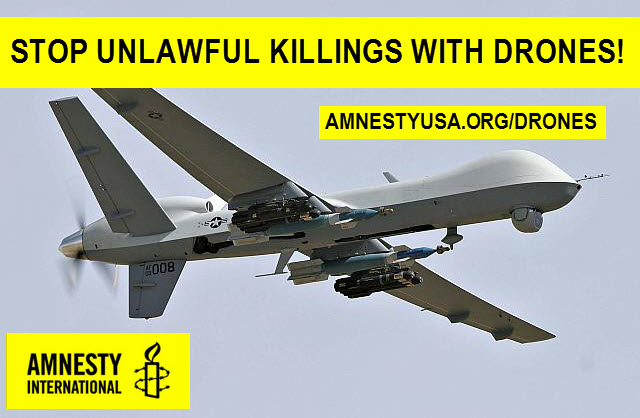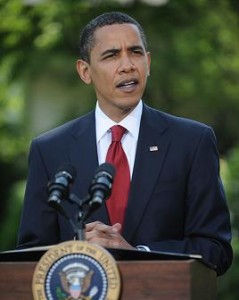
Public thirst is growing for more information about the Obama administration’s death-by-drone program and what can be done to ensure US policies do not authorize unlawful killings— whether of a US citizen or anyone else. Unfortunately, a number of commentators—including the editorial board of the New York Times—have proposed the idea of a special court to review the Obama administration’s kill list, along the lines of the Foreign Intelligence Surveillance Court, which reviews executive surveillance and search requests in espionage or terrorism cases. It’s a terrible idea that underscores how far from basic human rights principles the “global war” approach to countering terrorism has taken the US government.
A secret drone death-warrant court, would in some sense be issuing a warrant of execution, without the condemned person ever knowing that a “charge” has been laid, that a “trial” has taken place, or that a “verdict” and “sentence” has been passed, let alone being able to defend themselves in the proceedings in any way. If “global war” thinking hadn’t permeated so much of the way the US government thinks and talks about how to deal with the threat of terrorism, the proposal by some to establish a special court that would secretly review and approve government proposals to conduct lethal drone strikes would immediately be rejected as a non-starter that misses the point.


